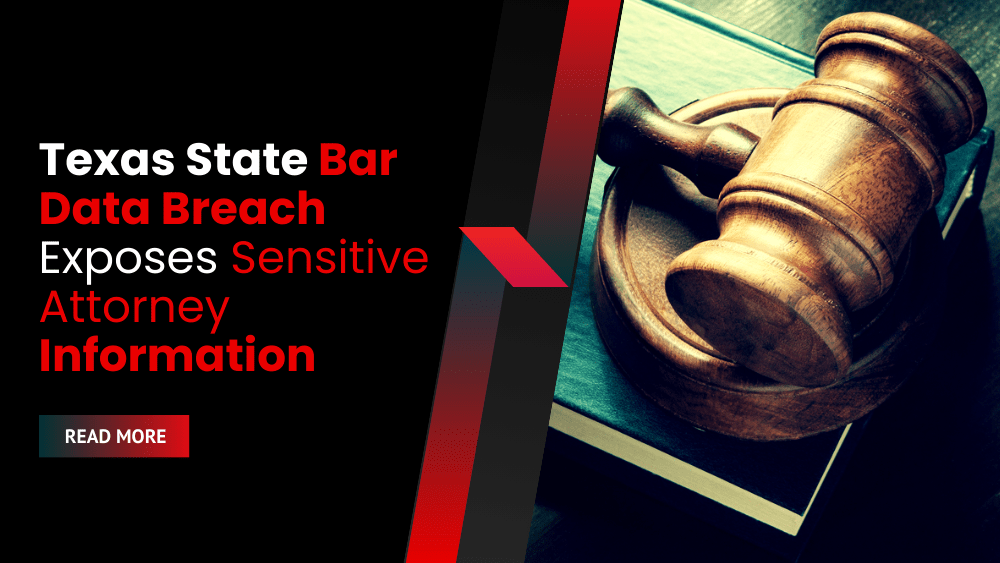The State Bar of Texas, the second-largest bar association in the US, suffered a significant data breach. The incident, discovered on February 12, 2025, involved unauthorized access to its network between January 28 and February 9, 2025. The breach exposed sensitive data belonging to over 100,000 licensed attorneys.
Data Compromised in the Texas State Bar Data Breach
The leaked information includes highly sensitive data points. This includes Social Security Numbers, driver’s license numbers, government-issued IDs, financial details (credit card and account numbers), medical information, health insurance details, full names, and legal case documents.
“What’s particularly concerning here is the nature of the exposed data,” warned Steve Povolny, Senior Director of Security Research and Competitive Intelligence at Exabeam.
“Legal case documents and personally identifiable information (PII) can have far-reaching implications – not just in terms of privacy, but also in undermining legal processes and potentially jeopardizing ongoing litigation.”
The State Bar of Texas has offered complimentary credit monitoring through Experian to affected members. They advise members to monitor their accounts and credit reports for suspicious activity. The bar association has also implemented additional security measures and reviewed its data privacy policies.
Ransomware Group Claims Responsibility
While the State Bar of Texas hasn’t publicly named a specific threat actor, the INC ransomware group has claimed responsibility for the breach, posting data samples on its leak site. The extent of the ransom negotiations, the attack vector, the exact number of victims, and the ransom amount remain undisclosed.
“If I was impacted by the breach and I’m still with the organization, I would want to know how it happened and that they are taking steps to make sure it doesn’t happen, at least the same way, again,” noted Roger Grimes, data-driven defense evangelist at KnowBe4.
“Most ransomware attacks occur because of social engineering, and after that, unpatched software or firmware. Was that how it happened? Do they know? Because if you don’t know how it happened, you can’t assure me you’ve taken steps to make sure it can’t happen again.”
The sensitive nature of the data involved raises the question of whether the State Bar considered paying the ransom. Authorities generally discourage ransom payments, but acknowledge the difficult decisions faced by organizations in such situations.
“However, the FBI understands that when businesses are faced with an inability to function, executives will evaluate all options to protect their shareholders, employees, and customers,” the agency states.
Implications for Legal Institutions and Cybersecurity
This incident highlights the vulnerability of legal institutions to cyberattacks. The vast amounts of sensitive data they hold make them attractive targets for ransomware groups. Previous breaches affecting the New York City Bar and the State Bar of Georgia underscore the widespread nature of this threat.
“The compromise of the State Bar of Texas underscores the persistent and evolving threat that ransomware actors pose to public institutions and the legal sector,” warned Povolny.
He emphasizes the need for proactive cybersecurity measures, including zero-trust architectures and robust incident response plans.









